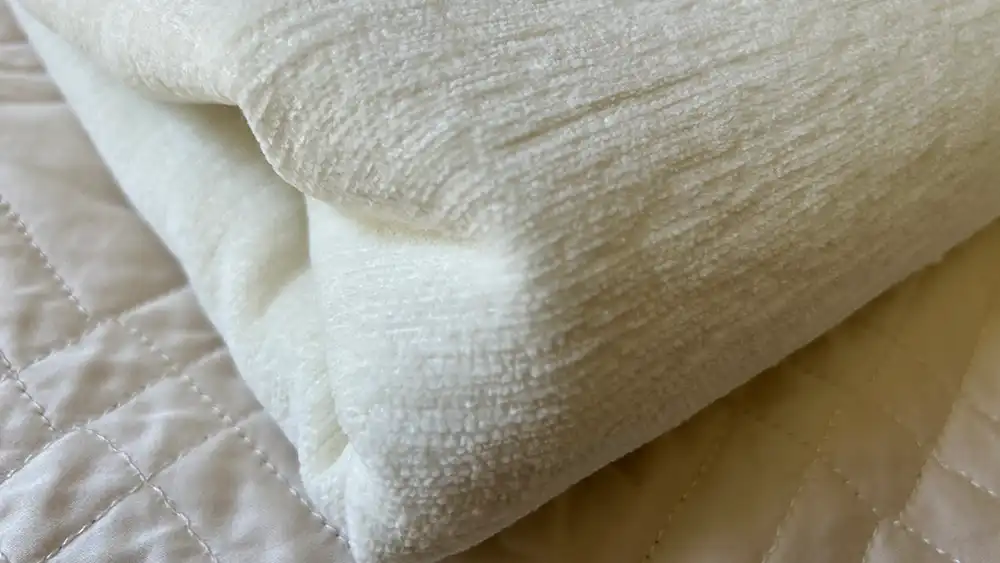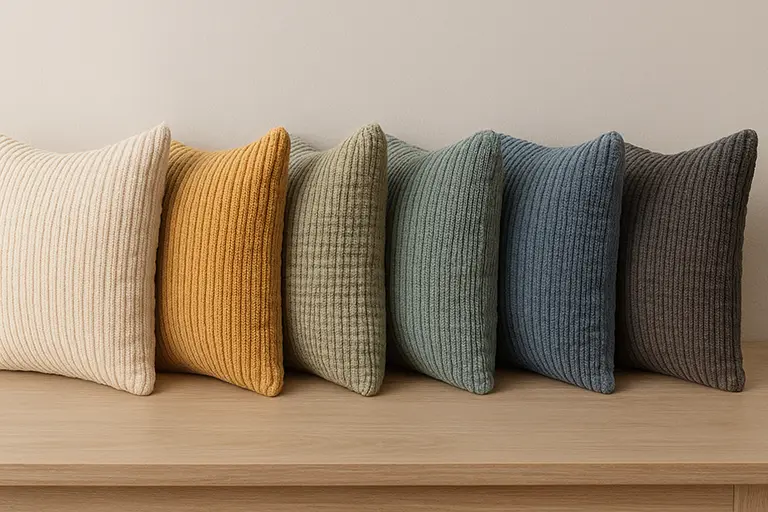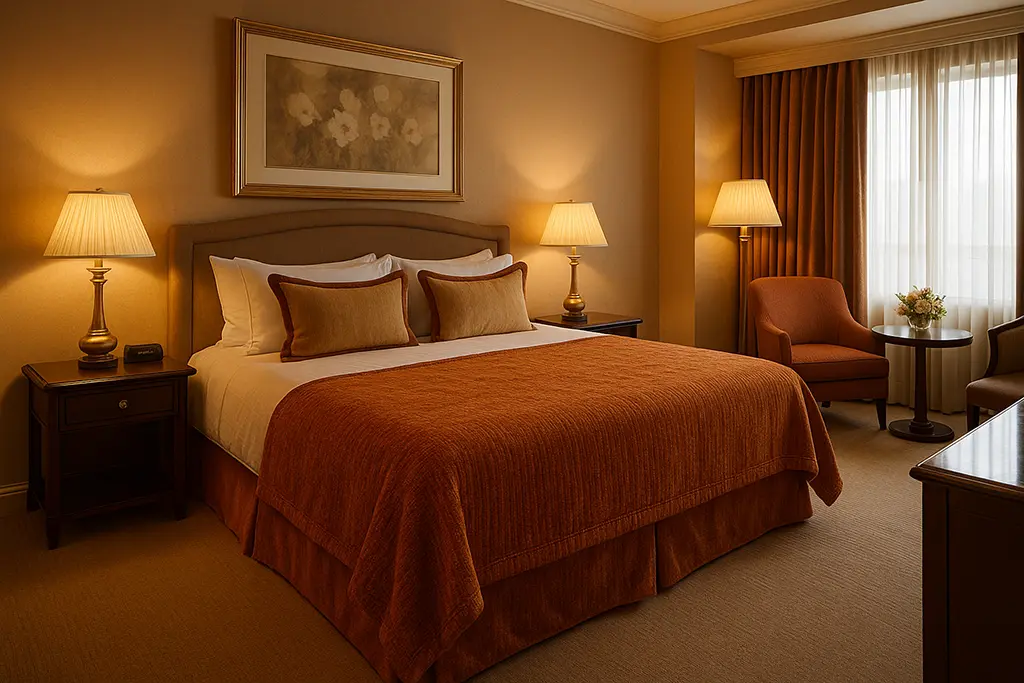Chenille fabric, known for its plush texture and distinctive velvety appearance, has gained increasing popularity in the bedding sector. Originally favored for upholstery and decorative textiles, chenille is now widely used in comforters, throws, pillow covers, and bedspreads—particularly in upscale home and hospitality settings.
For commercial buyers, chenille offers a compelling combination of tactile luxury and visual appeal that enhances both guest experience and brand perception.
What Is Chenille Fabric?
The word chenille comes from the French term for “caterpillar,” a nod to its fuzzy, textured surface. It is created by weaving short lengths of yarn between two core yarns and then cutting them to produce a soft, tufted pile. Common fiber contents include cotton, polyester, rayon, and acrylic blends.

Key Benefits of Chenille in Bedding
1. Luxurious Texture & Appearance
Chenille delivers a rich, velvety hand feel and a soft sheen that adds visual depth to bedding ensembles. This makes it an excellent choice for creating an upscale, inviting sleep environment in boutique hotels or luxury properties.
2. Enhanced Comfort
Its thick, soft pile provides excellent warmth and coziness, making it ideal for bedspreads, coverlets, or decorative throws that complement functional bedding layers.
3. Design Versatility
Chenille is available in a wide range of colors, patterns, and finishes—from matte to glossy—making it suitable for classic, modern, or eclectic interior themes.
4. Durability with the Right Construction
While traditionally considered delicate, modern chenille blends with polyester or other synthetic fibers are more resistant to abrasion, shrinkage, and fading—qualities important for commercial laundering cycles.
Common Chenille Bedding Applications
| Product Type | Features | Suitable For |
|---|---|---|
| Chenille Bedspreads | Textured, decorative, and often patterned | Boutique hotels, homestays |
| Chenille Throw Blankets | Lightweight, warm, and visually rich | Hotel lounges, guestroom accents |
| Chenille Pillow Covers | Soft touch with elegant patterns | Decorative accessories for upscale rooms |
| Chenille Comforters | Luxurious feel with plush warmth | Premium suites, Airbnb listings |
Chenille vs Other Bedding Fabrics
| Attribute | Chenille | Cotton Sateen | Microfiber |
|---|---|---|---|
| Texture | Plush & Velvety | Smooth & Silky | Smooth & Lightweight |
| Visual Impact | High | Moderate | Low |
| Warmth | Excellent | Moderate | Moderate |
| Durability | Medium–High (with blends) | High | Very High |
| Cost | Moderate–High | Moderate | Low |
Considerations for Commercial Buyers
When sourcing chenille bedding for hospitality or retail environments:
- Fiber Blend Matters: Opt for poly-cotton or polyester chenille for enhanced washability and lifespan.
- Backing and Stitching: Look for products with reinforced backing to prevent fiber shedding and maintain structure.
- Usage Context: Chenille is best used as a decorative layer rather than a primary sleeping sheet, especially in high-turnover lodging.

Conclusion
Chenille fabric brings an elevated sense of comfort and visual richness to bedding, ideal for hospitality spaces seeking a more curated and inviting atmosphere. When selected thoughtfully, it becomes a powerful asset in brand differentiation—offering not just comfort, but a memorable sensory experience.
For wholesalers, retailers, and hospitality specifiers, investing in high-quality chenille bedding means combining elegance with practical performance.


Leave a Reply